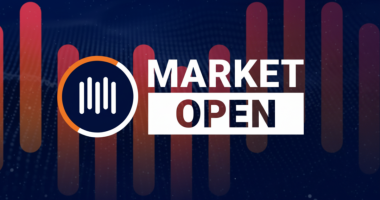- Speculation of early “evidence” of successful proof-of-concept human trials sparks stock rallies
- Trial volunteers taking a placebo are offered the real deal in a follow-up trial as a “reward”
- The company’s extraordinary gesture adds fuel to the fire of excited anticipation
- Word gets around in a small rehab clinic. Placebo volunteers likely know that the trial drug appears to work
- Even NervGen’s CFO is already saying he anticipates “positive results later this year” from the trial
Is NervGen Pharma Corp. (TSXV:NGEN; OTCQX:NGENF) struggling to keep a lid on explosively transformative news? It looks that way.
In recent weeks, the company’s share price has surged higher a couple of times in response to hints that NervGen’s ongoing proof-of-concept Phase 1b/2a clinical trial in humans may actually be working. But each rally has subsided, with the share price retreating in resignation in the absence of hard news. And the company has been smart enough to keep tight-lipped about this ongoing make-or-break trial for paralyzed victims of chronic spinal cord injuries (SCI).
That said, NervGen may still have inadvertently let the cat out of the bag by way of a well-intended gesture – one that seems to be extraordinarily telling to anyone reading between the lines. This may yet prove to be great news for investors. Let me explain.
First of all, it’s worth noting that the company’s top medical scientists have previously suggested that the trial drug is expected to work equally as effectively in humans as it did in animals during pre-clinical trials. Plus, the trial drug’s therapeutic effects are expected to be felt within days of the onset of treatment via daily injections.
As I have previously mentioned in my last article, this ideal scenario of a near immediate therapeutic response appears to be exactly what is happening with at least one of the initial several trial volunteers. Meanwhile, the progress of the other trial volunteers is still being kept under wraps by the independent medical researchers running the trial. So there could be other trial patients responding well to the treatment, too. This is all mindful that this clinical trial is enrolling up to 20 volunteers in total – a process that is expected to be completed within the next few weeks.
Interestingly, NervGen appears to be pre-emptively trying to get ahead of any more positive anecdotal “evidence” that may leak out. This very revealing manoeuvre was announced last month in a Feb. 15 news release. In short, the company has taken the unprecedented step of offering to “reward” trial volunteers who are taking the placebo with an opportunity to get the real trial drug at a later date – assuming that it passes muster in the current trial.
Here’s how NervGen’s Chief Medical Officer, Dr. Dan Mikol, MD. Ph.D., articulated this extension of an olive branch to trial volunteers who are seemingly missing out: “We are also very excited about our plans to offer open-label NVG-291 to those placebo-treated subjects who committed their time and energy in the current trial.”
Again, you don’t have to be a rocket scientist to understand the implications of Dr. Mikol’s comments for the trial’s outcome.
Keeping everyone happy: The big payoff for placebo patients
The company’s fascinating February 15th announcement makes a lot of sense. Let’s start with the fact that the ongoing trial is a “double blind” trial in which no-one among the volunteers knows for sure whether they’re being administered the trail drug or the placebo.
However, NervGen’s scientists are not expecting the trial drug to have a delayed onset with patients who receive it, and no-one is expecting a placebo effect either. Instead, the trial drug is expected to provide therapeutic benefit within days of first being administered. Remarkably, this is apparently what has happened with the one trial volunteers (as previously mentioned), who is said to be making exceptional progress.
Unfortunately, patients who fail to see any improvement in their paralysis within the first several weeks of treatment are presumably left to deduce that they are in the placebo group. In turn, they may be disheartened enough to want to quit the trial – which is about 90 days in duration. And that would be problematic for the people running the trial.
So what would entice these placebo group trial volunteers to stick around for the full duration of their current trial?
It’s two things: First, it’s the volunteers’ belief that the trial drug is actually working in other trial participants. Second, it’s the opportunity to be allowed to enrol in a follow-up “unblinded” trial, possibly as soon as Q4 of this year.
As for the first point, it is worth noting that the trial is being conducted at Chicago’s Shirley Ryan AbilityLab. And even though this is a world-class facility for the physical rehabilitation of patients with severe nerve damage, it is still a relatively small clinic. And exciting news no doubt gets around, especially among patients. So it’s perfectly reasonable to see how some trial volunteers are becoming aware that the trial may be working for the lucky ones who are getting the real goods.
As to the second point, it’s the perfect solution to handling disgruntled trial volunteers who are savvy enough to realize that they’re missing out on something that could be a godsend for them.
Meanwhile, the definitive answer to all the amped-up speculation about the trial drug’s efficacy will come with the trial readout, which is expected as early as Q3 of this year.
Investors, keep in mind the Big Picture too. If this proof-of-concept trial works, then the therapeutic value of improving nerve connectively could conceivably be applied to other major degenerative diseases, such as ALS, stroke, multiple sclerosis (MS), and even Alzheimer’s disease. This is NervGen’s ultimate “home run” mandate.
Is NervGen’s CFO unwittingly hinting at a winning hand?
Maybe the difficulty to keep a lid on big news for a few more months has gotten the better of Dr. Dan Mikol too. After all, it’s very intriguing that he would he say the following in the same February 15 news release: “… we look forward to the prospect of delivering positive results later this year.”
It’s a seemingly innocuous comment. Yet the clinical trial is clearly designed to be an impartial assessment of NervGen’s trial drug – NVG-291. So his anticipation of “positive results” months before the trial’s readout is nothing short of remarkable.
If appears that Dr. Mikol might actually be jumping the gun with a slip of the tongue – perhaps. This is not necessarily the case. But if it is, he must presumably know something that investors don’t know. I’m thinking that he does. And it’s my view that some of the investors who have been surging into NervGen lately during high-volume days similarly believe that a winning hand is fast taking shape.
Join the discussion: Find out what everybody’s saying about this stock on the NervGen Pharma Corp. Bullboard investor discussion forum, and check out the rest of Stockhouse’s stock forums and message boards.
Disclosure: The author of this article or members of his household or family, do not own shares in NervGen at this time. However, he may from time to time buy or sell shares in companies that are profiled in his various investment articles. Additionally, he is not compensated by the company directly or indirectly. His commentary is therefore based solely on his personal research and understanding of the life sciences sector. It is not intended as investment advice.
Disclaimer: This is third-party content provided by Knox Communications. Please see full disclaimer here.





